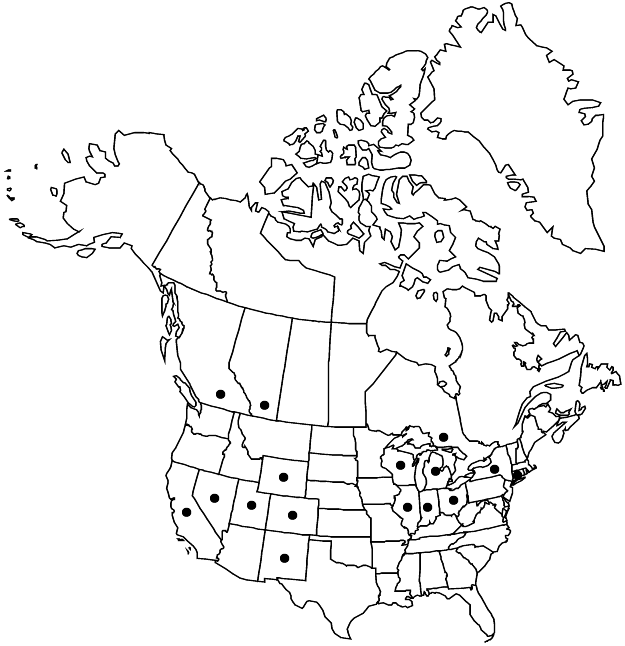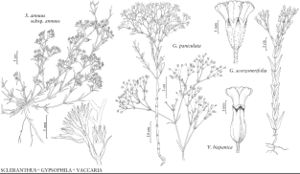Difference between revisions of "Gypsophila scorzonerifolia"
in A. P. de Candolle and A. L. P. P. de Candolle, Prodr. 1: 352. 1824.
FNA>Volume Importer |
FNA>Volume Importer |
(No difference)
| |
Revision as of 20:08, 24 September 2019
Plants perennial. Stems ± erect, simple or few-branched proximal to inflorescence, 5–20 dm, proximally glabrous, distally glandular-puberulent. Leaves basal and cauline, bases clasping; blade oblong-lanceolate to narrowly ovate, larger leaves 2–15 cm × 7–22(–35) mm, glaucous, apex obtuse to acute. Pedicels 1–12 mm, glandular-puberulent. Flowers: calyx 2.5–4 mm, lobes glandular-puberulent, apex obtuse; petals white with pink tinge to light purplish pink (drying darker), 4–6 mm. Capsules globose. Seed coats coarsely tuberculate. 2n = 68 (Europe, introduced population).
Phenology: Flowering summer–fall.
Habitat: Beaches, roadsides, railroad grades, quarries, and other open, calcareous, sandy or rocky, disturbed sites
Elevation: 0-1700 m
Distribution

Alta., B.C., Ont., Calif., Colo., Conn., Ill., Ind., Mich., Nev., N.Mex., N.Y., Ohio, Utah, Wis., Wyo., Europe (se, introduced elsewhere in Europe).
Discussion
There is a historic record of Gypsophila scorzonerifolia from Massachusetts collected in 1921.
Some Ohio specimens of Gypsophila scorzonerifolia have calyces rather sparsely glandular or appearing to lack glands at maturity, but all of the young flowers have obviously glandular calyces.
